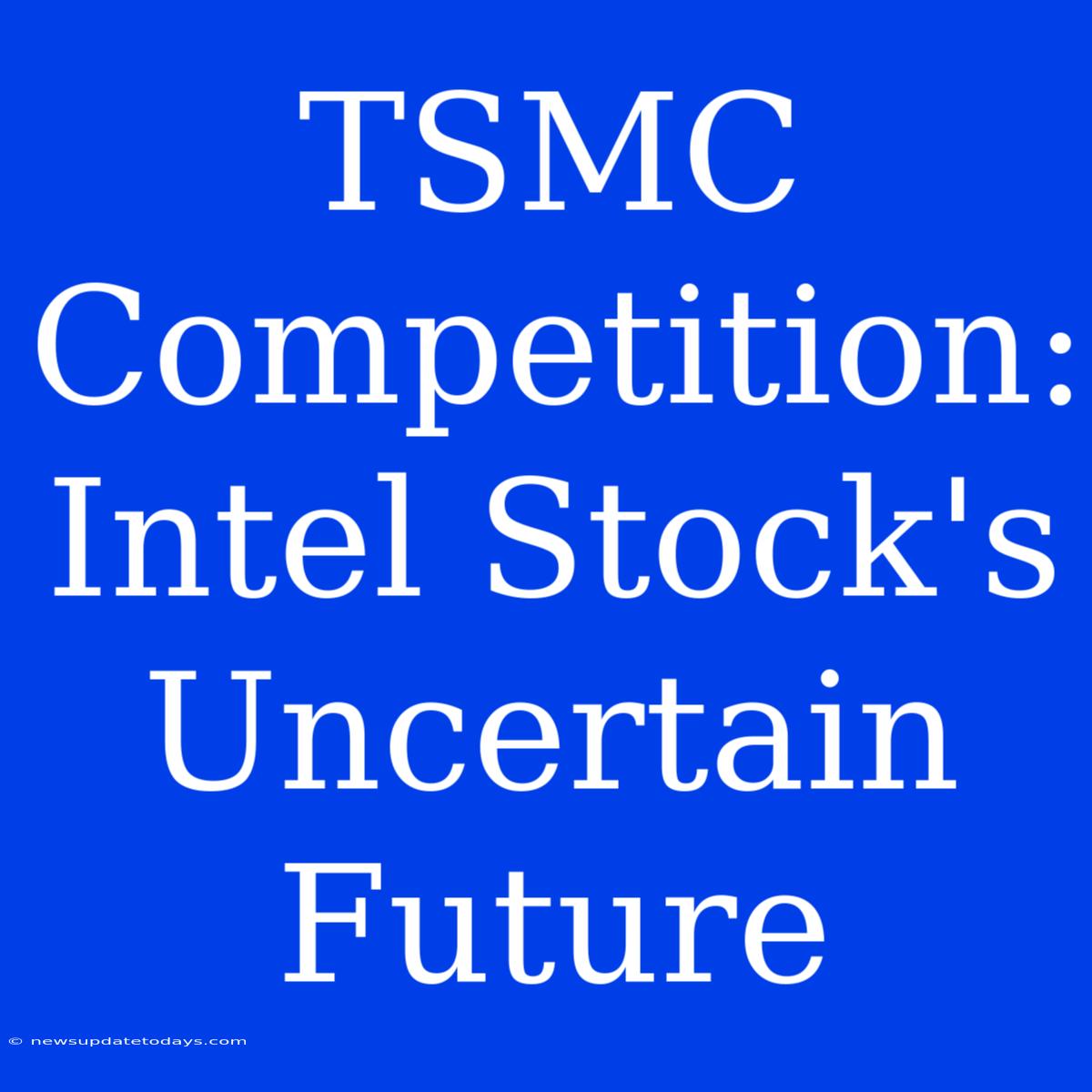TSMC Competition: Intel Stock's Uncertain Future
The semiconductor industry is a fiercely competitive landscape, and Intel, once the undisputed king, is now facing a formidable challenge from Taiwan Semiconductor Manufacturing Company (TSMC). This rivalry is significantly impacting Intel's stock and its future prospects, creating uncertainty for investors. This article delves into the key aspects of this competition and explores the potential implications for Intel's stock.
TSMC's Technological Prowess: A Major Threat
TSMC's dominance in advanced chip manufacturing is undeniable. They possess a leading-edge technology node, consistently outpacing Intel in producing smaller, faster, and more energy-efficient chips. This technological advantage allows TSMC to secure contracts with major tech giants like Apple, Qualcomm, and Nvidia, leaving Intel struggling to compete for market share in the high-margin segments.
Key Advantages of TSMC:
- Advanced Node Technology: TSMC consistently leads in process node innovation, offering superior performance and power efficiency.
- Fabless Model: TSMC's fabless model allows them to focus solely on manufacturing, optimizing efficiency and scalability.
- Diverse Customer Base: A broad range of clients mitigates risk and ensures consistent demand.
- Massive Investment in R&D: Continuous investment in research and development fuels their technological leadership.
Intel's Struggle to Catch Up: IDM 2.0 and Beyond
Intel, traditionally an integrated device manufacturer (IDM), has embarked on a significant transformation with its IDM 2.0 strategy. This involves increased outsourcing of manufacturing while simultaneously investing heavily in its own fabrication capabilities. However, catching up to TSMC's technological lead is proving to be a monumental task.
Challenges Faced by Intel:
- Yield Rate Issues: Intel has experienced challenges in achieving high yield rates at advanced nodes, impacting production costs and competitiveness.
- Manufacturing Delays: Delays in bringing new process technologies to market have further hampered Intel's progress.
- High Capital Expenditures: The massive investments required for advanced manufacturing facilities put significant pressure on Intel's profitability.
The Impact on Intel Stock: Volatility and Uncertainty
The intense competition from TSMC has created significant volatility in Intel's stock price. Investors are understandably concerned about Intel's ability to regain its technological leadership and maintain profitability in the face of TSMC's dominance.
Factors Affecting Intel Stock:
- Technological Advancement: Successful development and deployment of leading-edge technologies are crucial for regaining market share.
- Cost Efficiency: Optimizing manufacturing costs is essential for competitiveness in a price-sensitive market.
- Market Share: Reclaiming market share from competitors is vital for driving revenue growth.
- Investor Confidence: Regaining investor trust is critical for stabilizing the stock price and attracting future investment.
Conclusion: Navigating the Uncertain Future
The future of Intel stock hinges on the company's ability to successfully navigate the challenges posed by TSMC. While IDM 2.0 represents a significant effort to restructure its operations, the path to regaining technological leadership and reclaiming market share is fraught with hurdles. Investors need to closely monitor Intel's progress in achieving its strategic goals to make informed decisions about their investments. The coming years will be crucial in determining whether Intel can successfully rebound from the current competitive pressure or face a prolonged period of uncertainty.

